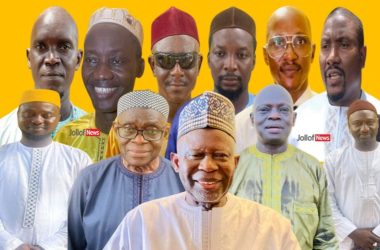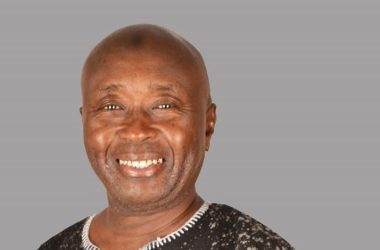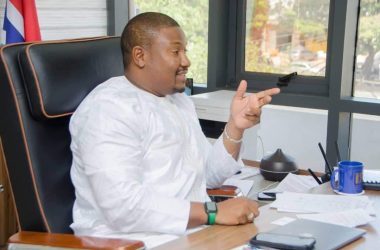
In less than three years in office, President Barrow has presided over the death of eight civilians in the hands of police with score of people injured and arrested for taking part in demonstrations. At this current rate of police brutality and the abuse of power, more civilians are at increasing risk of extrajudicial killing as President Barrow tries to consolidate powers in order to prolong his stay in office.
In less than three years, a catalogue of human right abuses and police brutality reveals President Barrow’s complete disregard for human rights protections in The Gambia.
Barely six months into Barrow’s presidency, the first civilian, Haruna Jatta lost his life from gunshot injuries after security forces opened fire on unarmed protesters on 2 June 2017 in Kanilai. Instead of the Government condemning the use of live ammunition against civilians, they accused the demonstrators of engaging in provocative acts against members of the security forces.
President Barrow’s acquiescence of police using live ammunition on civilians led to officers of the Police Intervention Unit (PIU) firing live bullets on 18 June 2018 at unarmed villagers, protesting against the mining of sand in their village in Faraba Banta without their consent. Two civilians, Bakary Kujabi and Ismaila Bah died of gunshots on the day of the protest, while Amadou Jallow (also locally known as Amadou Nyang), died the following day of his wounds at the Edward Francis Small Teaching Hospital in Banjul, where several other protestors were treated for injuries.
Again, there was no instant condemnation of these killings from the Government. After a massive public outcry, President Barrow took action to commiserate with the bereaved families and set up a commission to investigate the incident. However, the setting up of the commission turned out to be more of a ploy to calm down public outcry than a genuine attempt to take a tough stance against police brutality.
The president’s insincerity was laid bare when he announced in January 2019 in a press release the discontinuation of the prosecution of the perpetrators named in the report of the Faraba Banta Commission. Barrow’s reason for the discontinuation of the prosecution was based on a flimsy claim that he received an appeal from the community to end the prosecution. This act of the president exposes his utter lack of commitment to stamp out police brutality.
After the Faraba Banta incident, police officers were again involved in the killing of civilians. First Class Constable Lamin Trawally used a knife to stab and kill Kebba Secka, a university student on 7 July 2019 when the latter resisted an arrest. In a belated press release from the police, one would have expected the Inspector General of Police (IGP) to condemn the killing and the excessive use of force as well as send a stern warning to police officers that unlawful arrest, torture and ill treatment have no place in the new Gambia. But the press release made no mention of that.
in the same month of July, another civilian Ousman Darboe, a vendor lost his life shortly after being released from the custody of the Anti-Crime Unit (ACU). The family of the deceased alleged that Darboe was detained beyond the mandated 72 hours and tortured while in custody, which led to his death.

The death of Ousman Darboe triggered the strongest backlash from the public with thousands of youths running riot and causing mayhem in the streets of Serrekunda where they vandalised several police vehicles and burnt down the house of the ACU boss. In response, the Government sent out men in plain clothes and mask with AK47 rifles and other weapons to intimidate the public.
Beside the killings of civilians, there have been attempts by the Barrow administration to stifle criticisms. In January 2018, Ismaila Ceesay, a university lecturer was arrested and detained for expressing concerns over the country’s national security. In May 2018, the Supreme Court made a ruling that criminalises abuses against the president. This decision by the Supreme Court means that any criticism against the president can be contrived for political purpose to arrest critics.
A month later after the Supreme Court ruling, a journalist Pa Modou Bojang was assaulted in June 2018 by the police while covering the Faraba Banta riot. While in detention, PIU officials beat Pa Modou, inflicting injuries to his head and face, according to the Gambia Press Union. All these events are not happening in isolation. They are occurring because the Barrow administration is condoning impunity.
Moreover, on Gambia’s Independence Day, 18 February 2019, Barrow made a public threat against critics whom he described as “faceless detractors”. This should have been a moment for the president to send a message of peace to reassure the country of his commitment to uproot Jammeh’s legacy of impunity and dictatorship.
In May 2019, Amnesty International raised concerns over the deteriorating human rights situation and urged the government to ensure that ACU and PIU of the Gambia Police Force and the State Intelligence Services (SIS) end excessive use of force, unlawful arrests and detention of people beyond the 72-hour period.
Notwithstanding the concerns of Amnesty International, Henry Gomez the youth advisor to President Barrow, declared in June 2019 at a campaign rally in Brikama that any youth who protest could be shot with live bullets. Gomez made this threat in the presence of the president who made no attempt to condemn it. This was an insensitive statement at the time given the number of civilians already killed by live bullets from the police.
In short, Gambians are sleepwalking into another era of repression. The repressive laws and institutions of the Jammeh era still exist and Barrow is making use of them. This does not bode well for the defence of freedom of speech and human rights in The Gambia.
If nothing is done to undertake serious and deep reform, many more innocent civilian lives will be lost under the Barrow administration.




